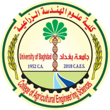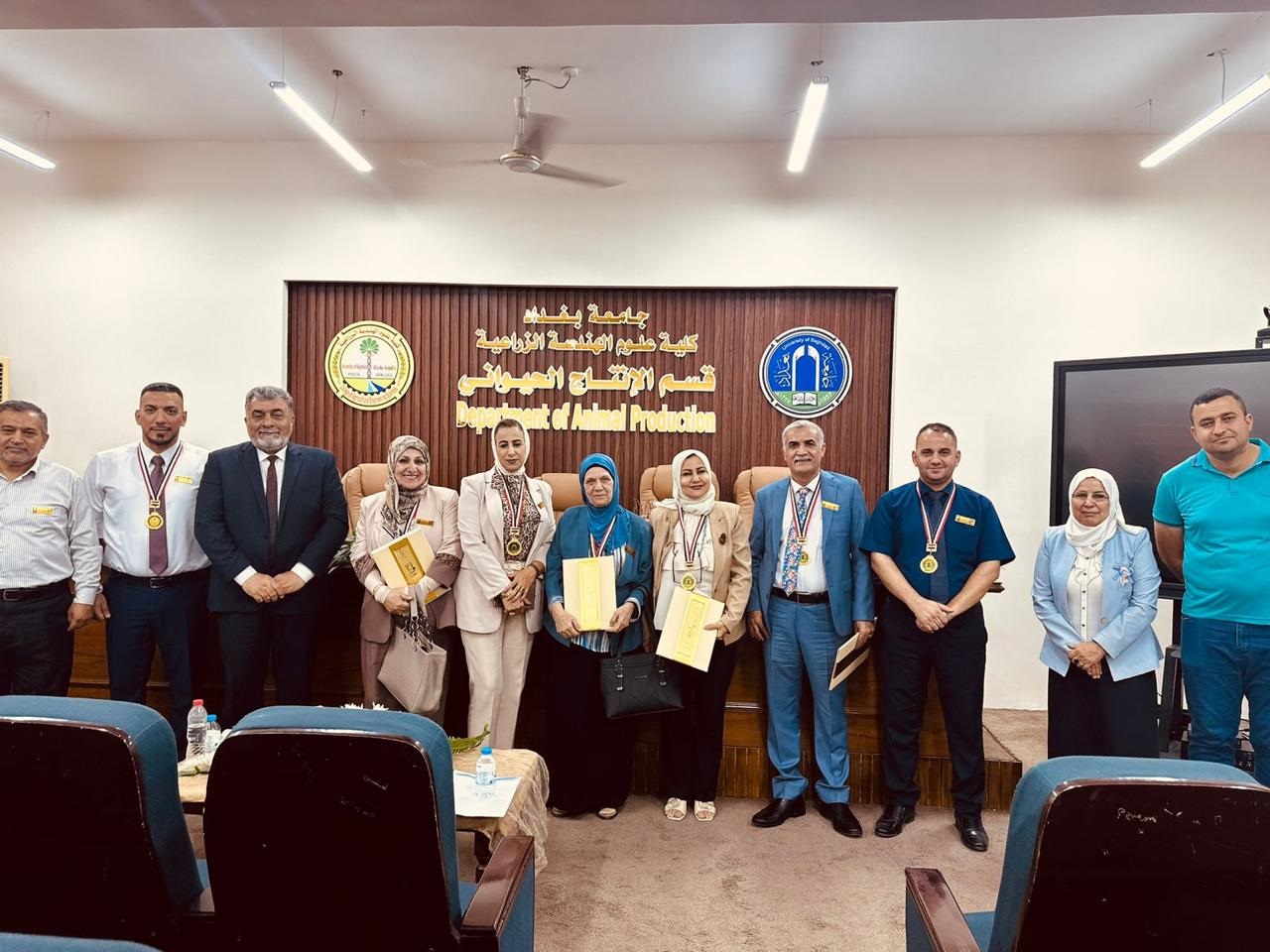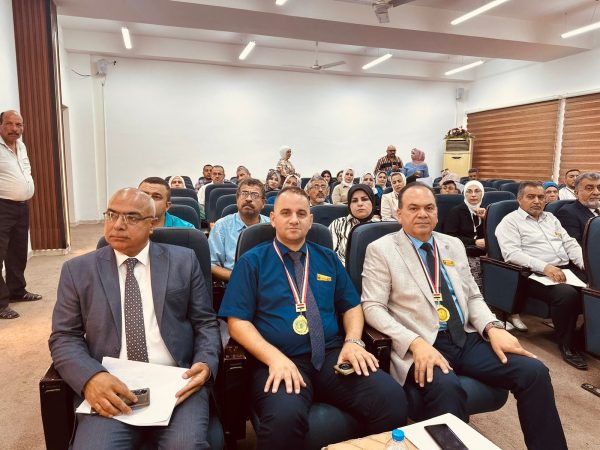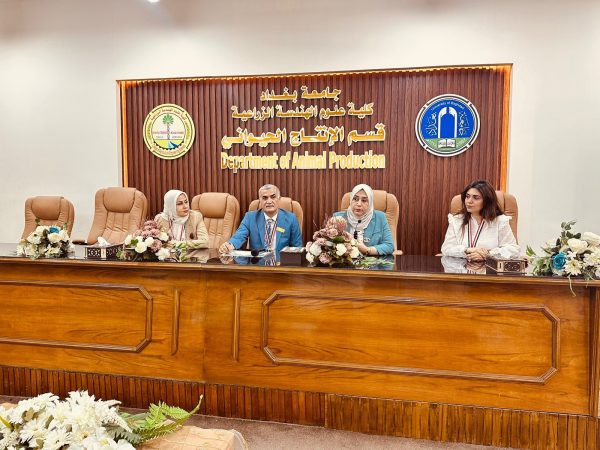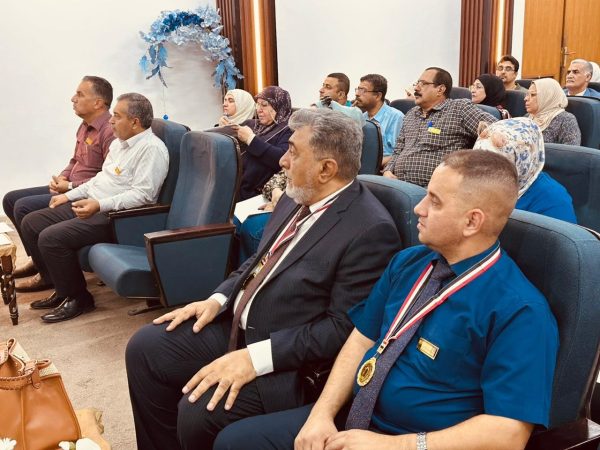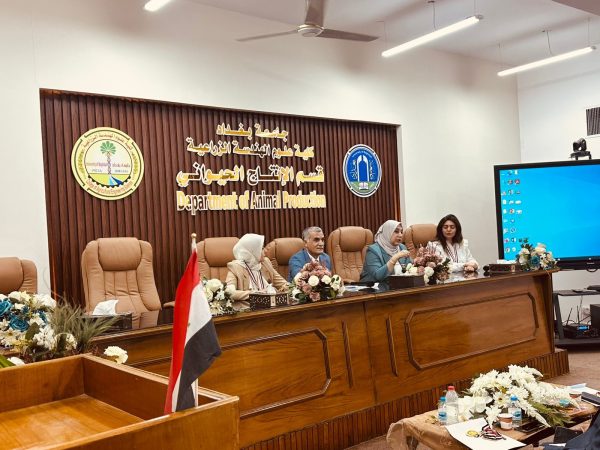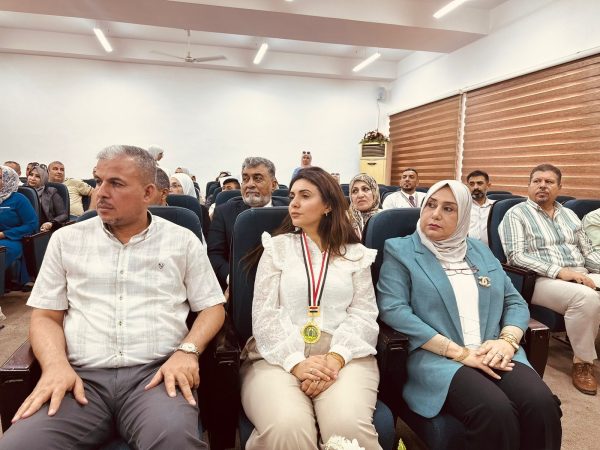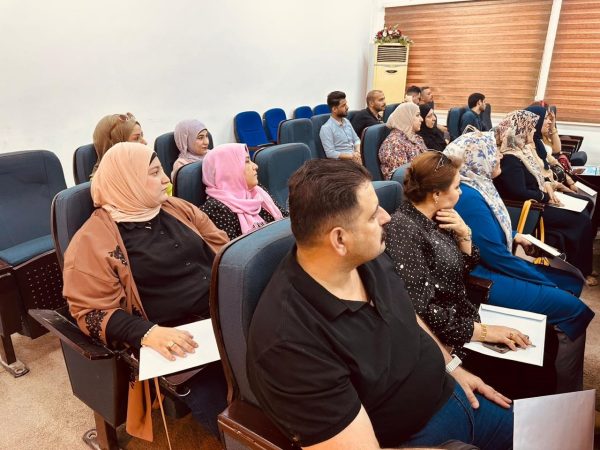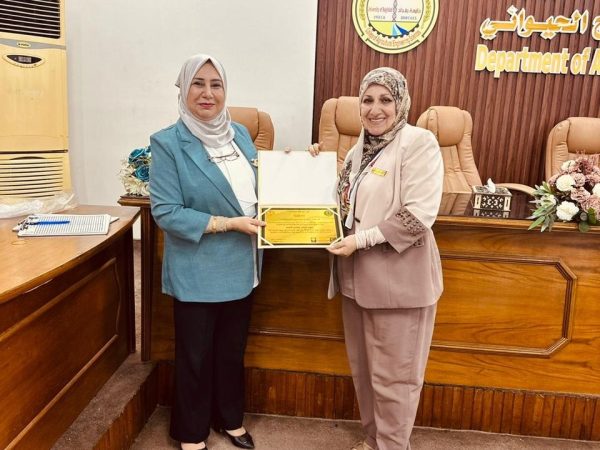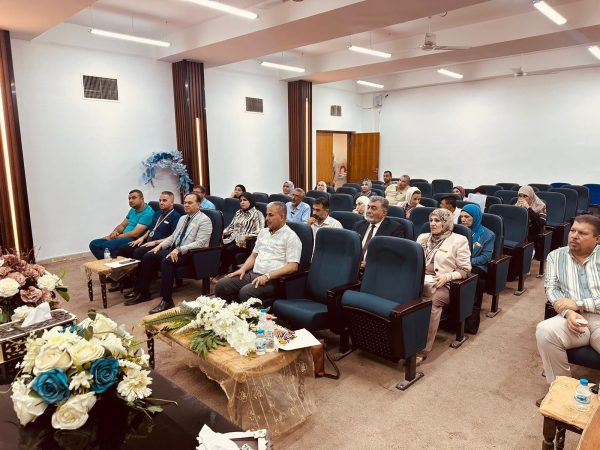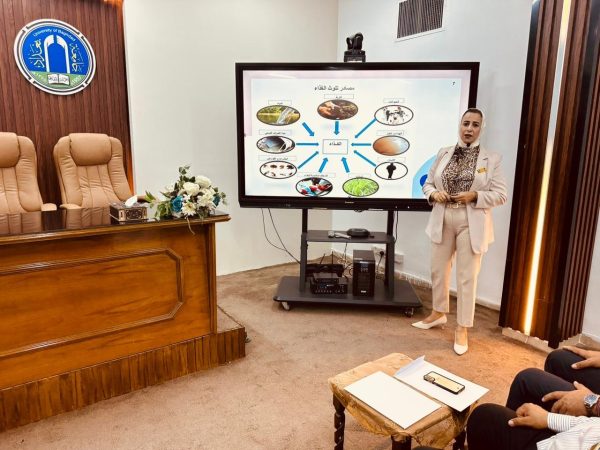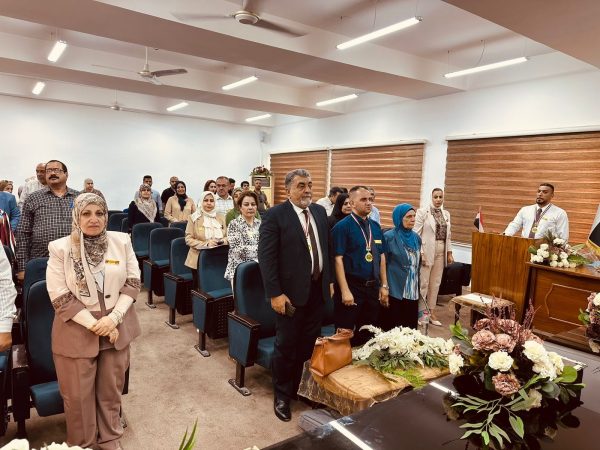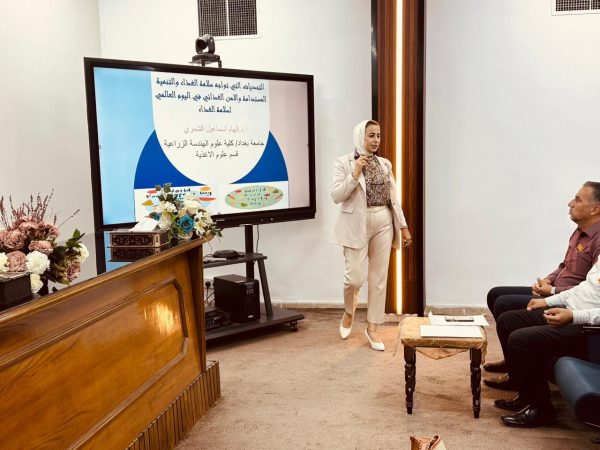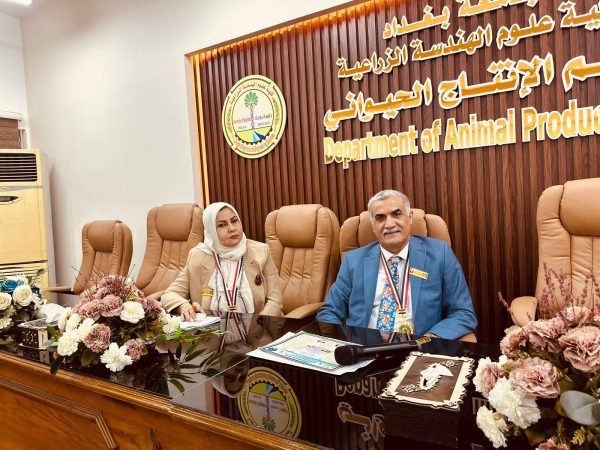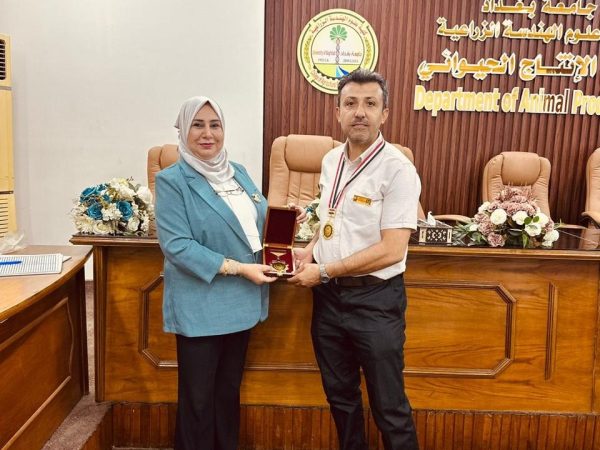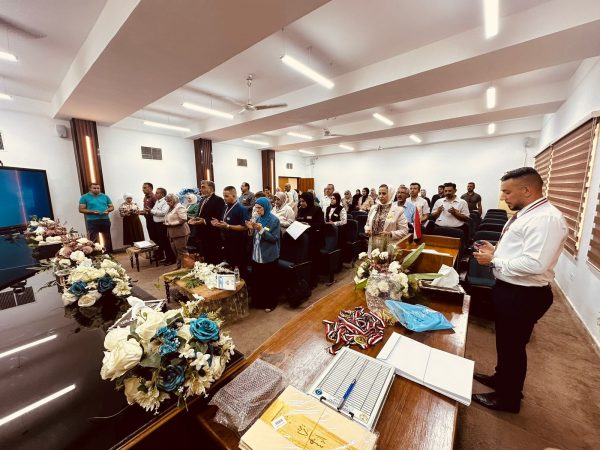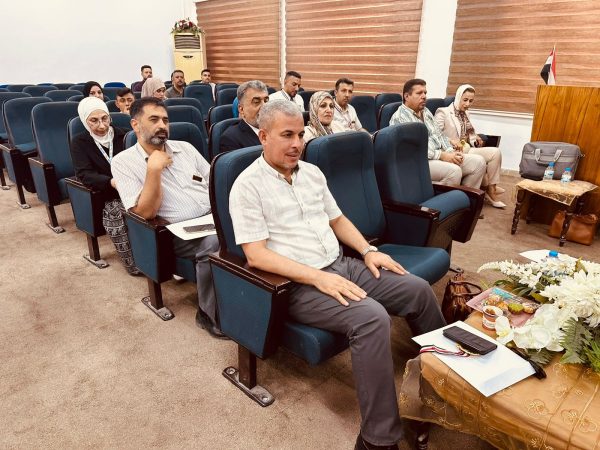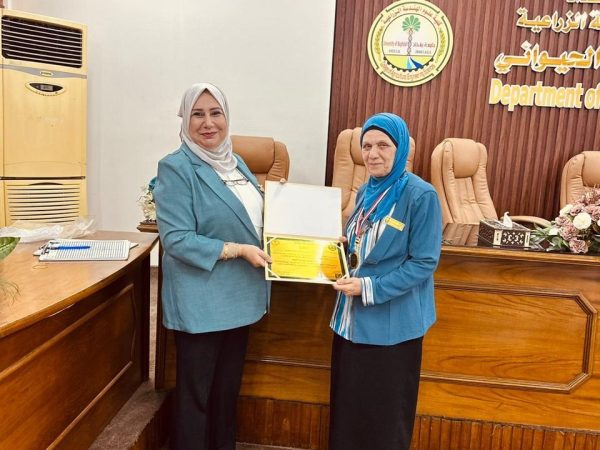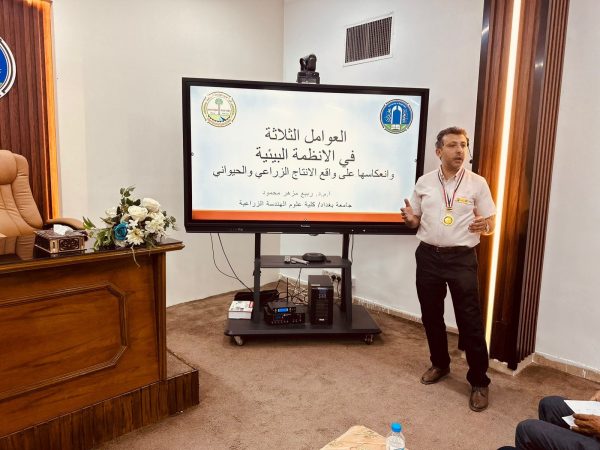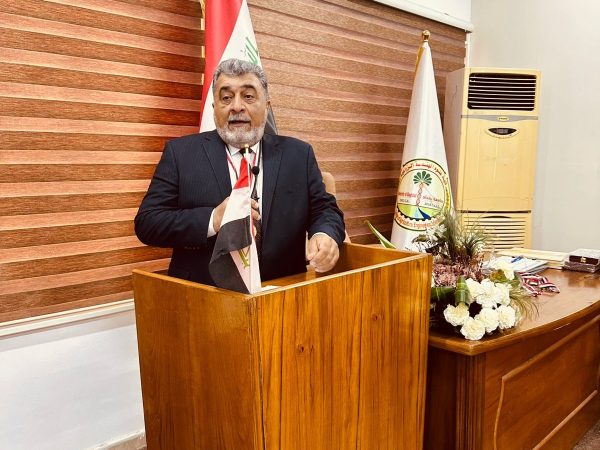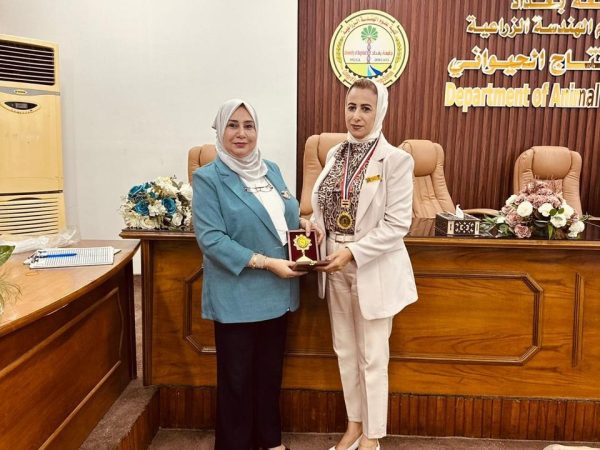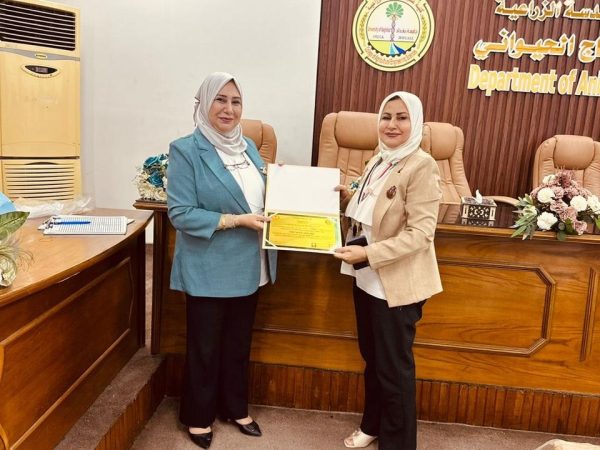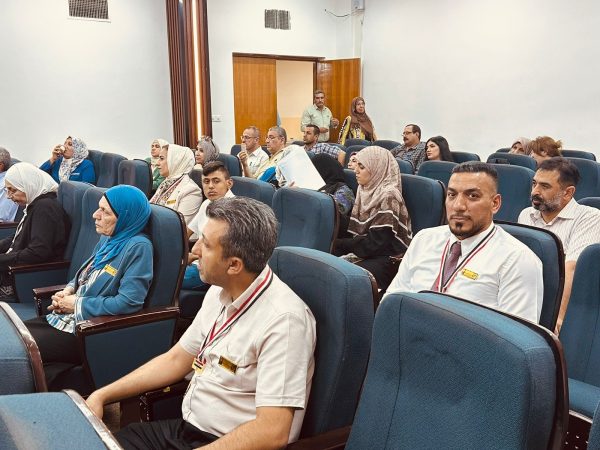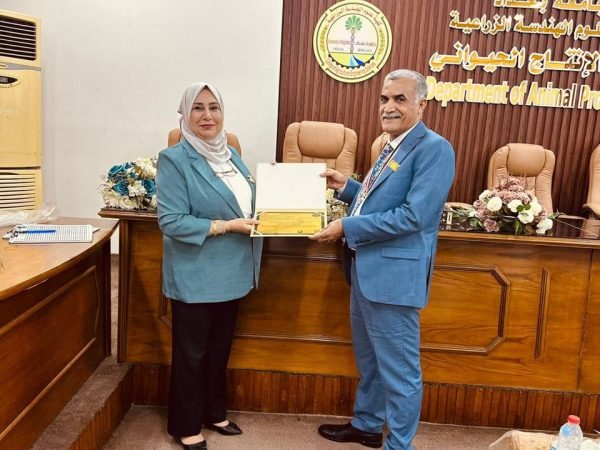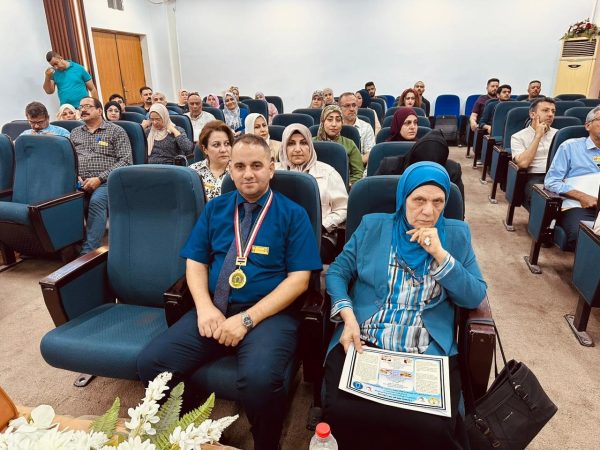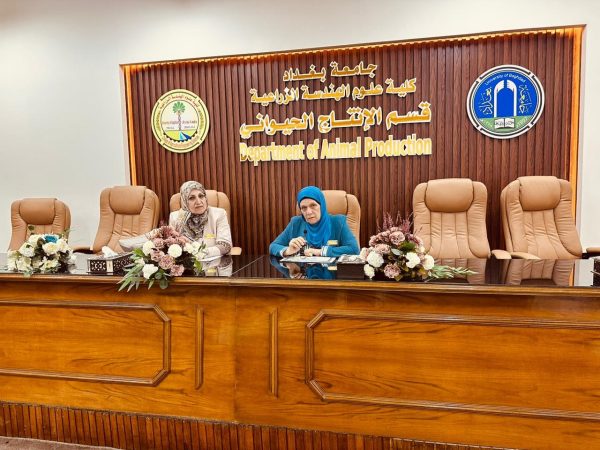The College of Agricultural Engineering Sciences at the University of Baghdad organized activities for World Food Safety Day under the slogan “Safe Food, Sustainable Health.” The event was held in collaboration between the Department of Animal Production and the Department of Food Sciences. This event was attended by Professor Dr. Amira Mohammed Saleh, Dean of the College, Professor Dr. Hakim Sultan Abdul Rukkabi, Dean of the College of Agriculture at the University of Wasit, Mrs. Wasan Baher, representative of the World Trade Organization, and a number of faculty members and guests.
The activities aimed to highlight the importance of food safety in achieving sustainable development goals, enhancing food security, and raising awareness about the challenges facing this vital field. The activities included two informative and knowledge-rich panel sessions:
In the first session:
Moderated by Professor Dr. Khalida Abdul Rahman Shaker.
Professor Dr. Ilham Ismail Al-Shammari gave a scientific lecture titled “Challenges Facing Food Safety, Sustainable Development, and Food Security.”
In the second session:
Moderated by Professor Dr. Nasr Nouri Al-Anbari.
Professor Dr. Rabee Mzher Al-Rubaie gave a lecture titled “The Three Factors in Ecosystems and Their Impact on Agricultural and Animal Production Reality.”
The event was attended by the representative of the World Trade Organization, Engineer Wisam, along with several faculty members, researchers, and postgraduate students of the College of Agricultural Engineering Sciences.
The final recommendations of this event included:
Strategic direction to identify various environmental problems in Iraq and provide suitable solutions through effective means, techniques, and scenarios, as well as cooperation with international organizations in this field.
Encouraging and educating different segments of society on the concept of food security.
Conducting studies and research focused on the environment, pollution, and the production of healthy food in line with global sustainable development.
Increasing the number of courses and workshops to delve into the details of environmental pollution and how to provide both immediate and long-term solutions, especially those that align with population growth and industrial development.
Continuous coordination with regional and international bodies and various organizations to effectively address the imbalance in environmental balance, produce healthy food, and focus on quality to reduce the production of genetically modified foods.
